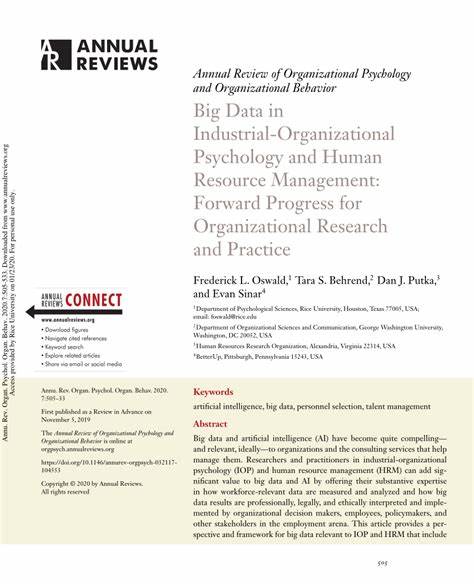工作狂:盘点并向前看
IF 31.1
1区 管理学
Q1 MANAGEMENT
Annual Review of Organizational Psychology and Organizational Behavior
Pub Date : 2023-11-21
DOI:10.1146/annurev-orgpsych-111821-035514
引用次数: 0
摘要
根据50年的研究,这篇文章将工作狂定义为包括高动机(例如,由于内部压力而被驱使去工作)和高努力支出(例如,在不工作的时候一直想着工作,工作超出合理预期)。工作狂可以从工作投入、工作激情和a型行为等概念中区分出来,有效的工作狂测量方法是可用的。就其前因而言,人口因素和人格因素与工作狂的相关性较弱。与工作相关的因素(比如过度工作文化和高工作要求)更为重要。工作狂可能会对员工的身心健康、幸福和家庭生活产生不利影响。工作狂并不比其他人表现得更好(但很可能更差)。尽管已经提出了许多干预措施来解决工作狂问题,但这些措施的效果通常都不清楚。最后,我们为未来的研究提出了一个简短的议程。《组织心理学和组织行为年度评论》第11卷的最终在线出版日期预计为2024年1月。修订后的估计数请参阅http://www.annualreviews.org/page/journal/pubdates。本文章由计算机程序翻译,如有差异,请以英文原文为准。
Workaholism: Taking Stock and Looking Forward
Drawing on 50 years of research, this article defines workaholism as involving high motivation (e.g., being driven to work due to internal pressures) as well as high effort expenditure (e.g., having persistent thoughts about work when not working and working beyond what can reasonably be expected). Workaholism can be distinguished from concepts such as work engagement, work passion, and Type-A behavior, and valid workaholism measures are available. Regarding its antecedents, demographic and personality factors are weakly related to workaholism. Work-related factors (such as the presence of an overwork culture and high job demands) are more important. Workaholism may have adverse outcomes for a worker's mental and physical health, well-being, and family life. Workaholics do not perform better (but may well perform worse) than others. Although many interventions have been put forward to address workaholism, the effects of these are usually unclear. We conclude with a short agenda for future research.Expected final online publication date for the Annual Review of Organizational Psychology and Organizational Behavior, Volume 11 is January 2024. Please see http://www.annualreviews.org/page/journal/pubdates for revised estimates.
求助全文
通过发布文献求助,成功后即可免费获取论文全文。
去求助
来源期刊
CiteScore
24.20
自引率
2.20%
发文量
22
期刊介绍:
Launched in March 2014, the Annual Review of Organizational Psychology and Organizational Behavior is a publication dedicated to reviewing the literature on I/O Psychology and HRM/OB.
In the latest edition of the Journal Citation Report (JCR) in 2023, this journal achieved significant recognition. It ranked among the top 5 journals in two categories and boasted an impressive Impact Factor of 13.7.

 求助内容:
求助内容: 应助结果提醒方式:
应助结果提醒方式:


